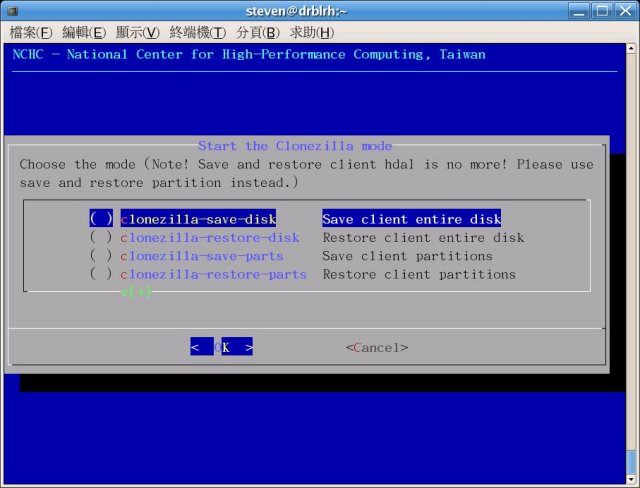Clonezilla 3.2.2-15 has been released, enhancing its capabilities as an Open Source partition, disk imaging, and cloning program. It serves a similar purpose to commercial software like True Image and Norton Ghost, facilitating system deployment, bare metal backups, and recovery. Clonezilla Live is ideal for individual machine backups, while its advanced version can clone over 40 computers simultaneously, increasing efficiency by saving and restoring only the used blocks on hard disks. Reports indicate that with high-end hardware in a 42-node cluster, a multicast restoring rate can reach up to 8 GB/min.
Clonezilla supports a variety of file systems, including ext2, ext3, ext4, ReiserFS, XFS, JFS, and Btrfs for GNU/Linux, as well as FAT and NTFS for Windows, HFS+ for Mac OS, UFS for BSD systems, and VMFS for VMware ESX. This broad compatibility allows users to clone different operating systems, whether they are 32-bit or 64-bit. For unsupported file systems, Clonezilla employs a sector-to-sector copy method using dd.
The program supports LVM2 under GNU/Linux, can reinstall bootloaders like Grub and syslinux, and is compatible with both MBR and GPT partition formats. Clonezilla Live can boot on BIOS or UEFI systems and offers an unattended mode to streamline the process. Users can leverage various boot parameters for customization during imaging and cloning tasks. It also allows one image to be restored across multiple local devices, and supports multicast capabilities, making it suitable for large-scale cloning operations.
For remote usage, Clonezilla can interact with clients that support PXE and Wake-on-LAN, enabling backups and restores over a network. Image files can be stored on local disks, SSH servers, Samba servers, or NFS servers. Clonezilla utilizes Partclone by default, with options to use Partimage, ntfsclone, or dd for imaging and cloning tasks. Furthermore, it can save and restore entire disks, and works in conjunction with the free tool drbl-winroll to automatically change the hostname, group, and SID of cloned Windows machines.
In summary, Clonezilla is a powerful, versatile tool for disk imaging and cloning, suitable for both individual users and organizations needing to deploy or backup multiple systems efficiently. Its range of supported systems and formats, along with its network capabilities, make it a valuable resource for data management and recovery
Clonezilla supports a variety of file systems, including ext2, ext3, ext4, ReiserFS, XFS, JFS, and Btrfs for GNU/Linux, as well as FAT and NTFS for Windows, HFS+ for Mac OS, UFS for BSD systems, and VMFS for VMware ESX. This broad compatibility allows users to clone different operating systems, whether they are 32-bit or 64-bit. For unsupported file systems, Clonezilla employs a sector-to-sector copy method using dd.
The program supports LVM2 under GNU/Linux, can reinstall bootloaders like Grub and syslinux, and is compatible with both MBR and GPT partition formats. Clonezilla Live can boot on BIOS or UEFI systems and offers an unattended mode to streamline the process. Users can leverage various boot parameters for customization during imaging and cloning tasks. It also allows one image to be restored across multiple local devices, and supports multicast capabilities, making it suitable for large-scale cloning operations.
For remote usage, Clonezilla can interact with clients that support PXE and Wake-on-LAN, enabling backups and restores over a network. Image files can be stored on local disks, SSH servers, Samba servers, or NFS servers. Clonezilla utilizes Partclone by default, with options to use Partimage, ntfsclone, or dd for imaging and cloning tasks. Furthermore, it can save and restore entire disks, and works in conjunction with the free tool drbl-winroll to automatically change the hostname, group, and SID of cloned Windows machines.
In summary, Clonezilla is a powerful, versatile tool for disk imaging and cloning, suitable for both individual users and organizations needing to deploy or backup multiple systems efficiently. Its range of supported systems and formats, along with its network capabilities, make it a valuable resource for data management and recovery
Clonezilla 3.2.2-15 released
Clonezilla is an Open Source partition, disk imaging, and cloning program similar to True Image or Norton Ghost.


